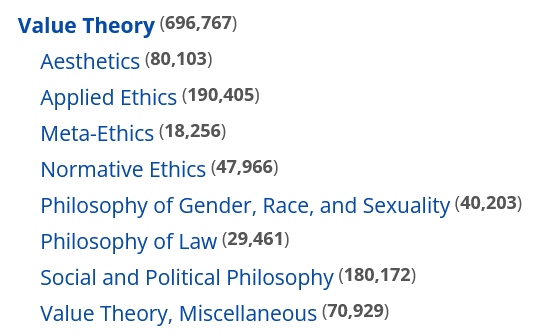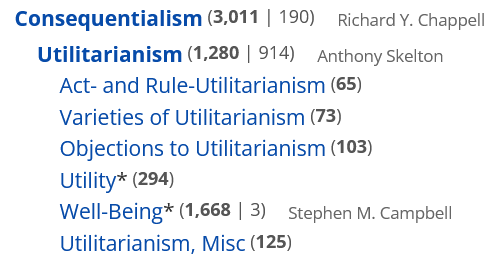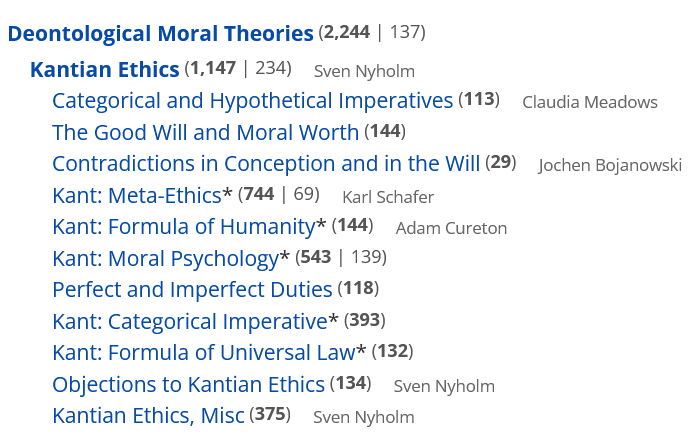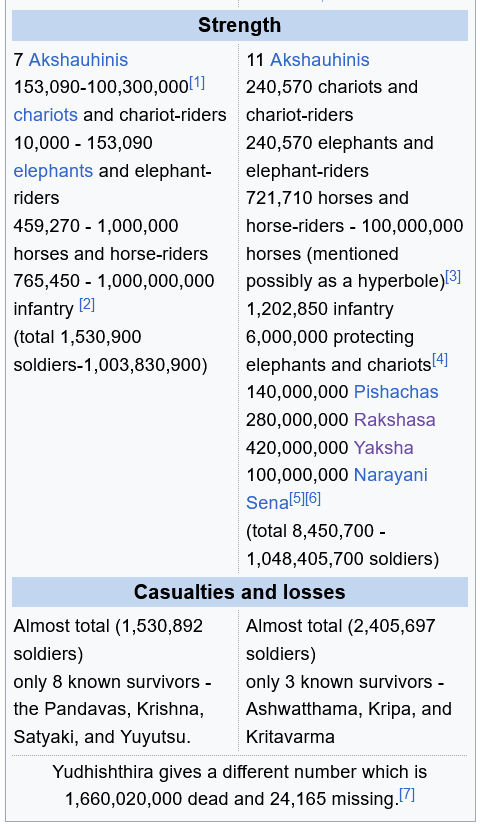NOMA is nonsense
Non-physics 26 mins read
Stephen Jay Gould’s Non-Overlapping Magisteria (NOMA) is nonsense. In an effort to save his field, evolutionary biology, from the wrath of creationists and biblical literalists, he threw the entire subfield of Ethics under the bus. A subfield that he didn’t even know existed. NOMA not only doesn’t solve the conflict thesis between scientific claims and religious claims but also adds fuel to a lesser known conflict thesis between ethics and religion.
“The greatest tragedy in mankind’s entire history may be the hijacking of morality by religion.”
Check the rationalwiki and wikipedia articles.
Context
Creationism vs evolution in the US was a prolonged battle between biologists and biblical literalists. Butler Act (1925) made teaching evolution in a US state illegal but later, many other states copied it. In Epperson v. Arkansas (1968), the US supreme court finally understood banning evolution violates freedom of speech. Edwards v. Aguillard, 482 U.S. 578 (1987) was another defeat for biblical literalists. An US state passed a law that every time evolution is taught in a public high school they must also teach Young Earth Creationism as an equally valid theory and that was ruled out as unconstitutional.
As explained by Weinberg and Dawkins above, biologists uniquely face this kind of headache. Weinberg explains that even though there are few genuine religious people in physics, others use the word “God” as a metaphor in the pantheistic sense, just like Spinoza and Einstein (see my next post).
When a physicist writes a textbook on cosmology, biblical literalists won’t come and demand to write about the Book of Genesis in that textbook. Funnily, David Tong wrote the below as his review for Daniel Baumann’s Cosmology (2022).

Physics is spared because advanced physics topics like quantum cosmology are not taught in middle or high school. Religion mostly focuses on the indoctrination of children because children are the easiest to brainwash (see my old post). Before they turn 18, you can tell them any absurd stories, and they will take them seriously.
What I said till now is about the US. Elsewhere, things are very different, and even physics is not spared. Check this Pakistani physics textbook from 2018, which teaches religious beliefs in the first chapter. In this aspect, India is slightly better than Pakistan but still worse than the US. India recently removed evolution from the high school syllabus. The Hintuva extremists are changing the history books also as they like.
Going back to the US, Gould wanted to save his field of evolutionary biology from this attempt to censor science. He thought he could propose a reasonable middle ground between scientists and theists. So, in 1997, he proposed Non-Overlapping Magisteria. As the below quotes make it clear, he was not religious. He gave the fields of ethics, meaning of life, etc, to religion as if these fields belonged to him or even science. He told the theists never to make any predictions about reality as this is the job of scientists.
“NOMA also cuts both ways. If religion can no longer dictate the nature of factual conclusions residing properly within the magisterium of science, then scientists cannot claim higher insight into moral truth from any superior knowledge of the world’s empirical constitution.”
“If you absolutely forced me to bet on the existence of a conventional anthropomorphic deity, of course I’d bet no. But, basically, Huxley was right when he said that agnosticism is the only honorable position because we really cannot know. And that’s right. I’d be real surprised if there turned out to be a conventional God.”
This whole episode seems very weird. Imagine you own a house. Then 2 random guys quarrel about who should own this house, and at the end, one guy tells the other you can have it, and they both agree. Neither asked you for your opinion and now one of those 2 guys occupied your house. This is exactly how it feels when Gould gave all moral authority to religion without asking the opinions of philosophers who work in the subfield of ethics. They are the relevant experts who can judge how good the morality given by religions is compared to hundreds of atheistic ethical theories. Gould didn’t know much about philosophy. His NOMA was extremely popular among those theists who were not literalists because they thought religion at least got its fair share of authority.
Is–ought problem
Gould’s NOMA is nothing but a cheaper version of the is–ought problem that Hume originally proposed in A Treatise of Human Nature (1739). It is one of the deepest problems in ethics. The problem is that almost any ethical theory starts with statements that talk about what is true. But somewhere, they switch from a statement that talks about what is true to a statement that talks about what we ought to do. It is not obvious how they are going from an is statement to an ought statement.
When thinking about scientific theories, we have a precise method called the scientific method. So this makes it easier to talk about what is. But for ethics, we have no such precise method, which makes it much harder to talk about what ought. (see this post)
This means it is hard to find which of the hundreds of ethical theories is the correct one. But just because it is hard to find which one is the best doesn’t mean we should blindly belive in the divine command theory, which is assumed by all religions. Frankly, it is one of the worst ethical theories among the hundreds.
Einstein wrote a lot about the is–ought problem. Einstein’s biggest blunder was not the cosmological constant incident but butchering the definitions of God and Religion whenever he wrote about the is–ought problem. He used to call the laws of physics as God. Now, most people think he believed in a traditional anthropomorphic God instead of pantheism. He also had a twisted defintion of religion that includes all ethical theories.
“It was, of course, a lie what you read about my religious convictions, a lie which is being systematically repeated. I do not believe in a personal God and I have never denied this but have expressed it clearly. If something is in me which can be called religious then it is the unbounded admiration for the structure of the world so far as our science can reveal it.”
“I cannot imagine a God who rewards and punishes the objects of his creation, whose purposes are modelled after our own — a God, in short, who is but a reflection of human frailty. Neither can I believe that the individual survives the death of his body, although feeble souls harbour such thoughts through fear or ridiculous egotisms.”
“I believe in Spinoza’s God, Who reveals Himself in the lawful harmony of the world, not in a God Who concerns Himself with the fate and the doings of mankind.”

As the above image from Wikipedia explains, Einstein was a philosophical prodigy and understood very well what the is-ought problem was telling. Gould is different; he completely misunderstood it. The only problem with Einstein is his terminology. He shouldn’t have used words like God and religion for his pantheism.
If NOMA was a philosophical argument, it would have been the second most ridiculous philosophical argument in the history of human thought, after Alvin Plantinga’s reformed epistemology argument that no basis (arguments, evidence, etc.) for belief in God is necessary. But NOMA is not even a philosophical argument, unlike Plantinga’s argument; it is just a misunderstanding of the is-ought problem. NOMA just assumes that the other hundreds of ethical theories don’t exist.
Conflict theses
The original conflict thesis is about history. In this post, I will talk not about the historical conflict between scientists and religious organizations but rather the conflict between claims of religion and claims of science/ ethics/history. Modern historians have discarded the original conflict thesis. They think historically, religion has done more help than damage to science. In the past, religious organizations like the catholic church donated a lot of money to science research. I agree with this. Except some incidences like the Galileo affair, Giordano Bruno affair, creation–evolution controversy etc., religion mostly helped science.
But I do think some historians over-exaggerate how much help religious institutions have given to the progress of science. Even though religion is becoming more watered down and its influence is waning, it is still a highly profitable business for religious organizations. In the US, the religion market is worth $1.2 trillion, and Indian temples alone (not inlcuding Indian mosques and church properties) are estimated to have gold reserves worth $2 trillion. How unfortunate that a poor country like India is wasting so much on religion when many people are not even getting food properly. Many centuries ago, religion was even more dominating humans, and the fraction of world resources given to religion was gigantic. They took all that by deceiving people by telling them that their religion answers questions related to the origin of the universe, ethical questions, etc. The fact that religion gave a very tiny fraction back to science and philosophy doesn’t mean religions are generous.
Religions make scientific claims, ethical claims, metaphysical claims, historical claims, etc., so they compete with many different fields. Just like science, all these fields are better for their respective things. Religion, in this sense, is nothing but a mixture of pseudoscience, pseudophilosophy (pseudoethics, pseudometaphysics, pseudoepistemology, etc.), pseudohistory, etc. In short, I think religion can be defined as dogmatic pseudoknowledge.
Science
“Of course I am not religious—I don’t in fact see how any scientist who thinks at all deeply can be so …”
Religions claim to know about the origin of the universe. So, religions are directly competing with theories of cosmology and quantum gravity. There are also other claims related to the afterlife that are already empirically falsified. Recall that when a part of your brain is damaged by an accident etc, you will forget some things. The more severe the damage, the more things you will forget. So, it should be clear that when a person dies and microorganisms eat their brain, then that person’s consciousness is completely gone (eternal oblivion). But religions believe that in your afterlife, you will have all of your memories and all of your cognitive capacity even after microorganisms completely eat your brain. That is an extraordinary claim that requires extraordinary evidence. But religions provide zero evidence for the afterlife.
I will explain more about cherry-picking later. But nowadays, most religious people have given up that religions can provide any proper explanations for physical phenomena that can compete with science. Science has succeeded overwhelmingly in the last 500 years. So theists understood that religion is no longer a worthy opponent to science. In the past, if you look at ancient religions, every phenomenon needed a god. The reason the Sun is moving is because it is god. Solar deities were present in most ancient religions. Similarly, a water god used to be the reason for rain, etc. There were agricultural deities who must be prayed during the harvest, etc. But nowadays, science explains all these things. One of the reasons evolution created that much controversy was because the origin of humans was one of the few things that science had yet to explain, and they were disappointed that religion is not needed for that either. God of the gaps argument failed because the gaps in scientific understanding are closing very fast, and there will be no longer be any gaps after a long time.
There is another deeper reason why it is hard to believe in religion if you believe in science. Science assumes methodological naturalism, and we are compelled to believe in the full naturalism to explain the unreasonable success of science. By that, I mean we can certainly imagine a universe where natural laws of physics work 90% of the time and 10% of the time, they are violated by the whims of a supernatural God. In such a universe, methodological naturalism assumption is only valid 90% of the time. So, the success of science will be much less. In our reality, the laws of physics have never been violated by any supernatural phenomena in history. I know all religions claim miracles, but as Hume explained, the amount of evidence you need to believe in miracles is gigantic (see this post). No claimed miracle has enough evidence. So, as far as we know, no supernatural phenomena occurred ever in our reality. To explain this unreasonable success of methodological naturalism, we are compelled to believe that supernatural phenomena can’t exist in our reality.
“No testimony is sufficient to establish a miracle, unless the testimony be of such a kind, that its falsehood would be more miraculous, than the fact which it endeavours to establish.”
“When anyone tells me, that he saw a dead man restored to life, I immediately consider with myself, whether it be more probable, that this person should either deceive or be deceived, or that the fact, which he relates, should really have happened…. If the falsehood of his testimony would be more miraculous, than the event which he relates; then, and not till then, can he pretend to command my belief or opinion.”
“I cannot understand why we idle discussing religion. If we are honest—and scientists have to be—we must admit that religion is a jumble of false assertions, with no basis in reality. The very idea of God is a product of the human imagination. It is quite understandable why primitive people, who were so much more exposed to the overpowering forces of nature than we are today, should have personified these forces in fear and trembling.
But nowadays, when we understand so many natural processes, we have no need for such solutions. I can’t for the life of me see how the postulate of an Almighty God helps us in any way. What I do see is that this assumption leads to such unproductive questions as why God allows so much misery and injustice, the exploitation of the poor by the rich and all the other horrors He might have prevented. If religion is still being taught, it is by no means because its ideas still convince us, but simply because some of us want to keep the lower classes quiet. Quiet people are much easier to govern than clamorous and dissatisfied ones. They are also much easier to exploit.
Religion is a kind of opium that allows a nation to lull itself into wishful dreams and so forget the injustices that are being perpetrated against the people. Hence the close alliance between those two great political forces, the State and the Church. Both need the illusion that a kindly God rewards—in heaven if not on earth—all those who have not risen up against injustice, who have done their duty quietly and uncomplainingly. That is precisely why the honest assertion that God is a mere product of the human imagination is branded as the worst of all mortal sins.”
Philosophy (Ethics)
There is a lesser-known conflict between religion and philosophy. The conflict is more severe with the subfield of ethics.
If you go to philpapers.org, you can see that there are 190,405 research papers written on Applied Ethics, 47,966 on Normative Ethics and 18,256 on Meta-Ethics.
If you go to Normative Ethics, you can see 3,011 papers on Consequentialism (Utilitarianism is the most popular subtopic) and 2,244 on Deontology (Kantian Ethics is the most popular subtopic)



There are many unpopular ethical theories apart from uitlitarianims and Kantian ethics. Because of the scientific method, science in totality can be viewed as a single theory encompassing physics, chemistry, biology, etc.
But in ethics, we have hundreds of theories. Religion lost against a single theory called science regarding authority over physical phenomena. Here, the competition is much worse. Hundreds of theories, and almost all are better than the divine command theory. You are not genuinely moral if you are just afraid of punishment in the afterlife. Divine command theory is not a good theory even if God existed due to the Euthyphro dilemma.
I think even though many people like Gould think people are still getting their morals from religion, even religious people stopped getting their morals from religions. Christianity and Islam both support slavery and many famous prophets in both religions have enslaved people. But most people who currently believe in these 2 religions think slavery is wrong (at least human slavery even if they don’t know about animal rights) even though their religions support it. You can visit skepticsannotatedbible.com and wikiislam.net to find many immoral things that were done by the prophets of these 2 religions. For Hindusim, there is not a single website but you can check r/EXHINDU and select the “Scriptures” flair to see the photos of immoral verses from Hindu scriptures posted by many ExHindus. Hinduism has many bad things like Sati (practice), Caste system etc. Nowadays, most religious people get their morals from their common sense and not from their religion.
Objective morality: Theists often claim religion is the only path to objective morality. This is utter nonsense. The ethical principles of any religion are very vague. No proper algorithm is given in these scriptures to decide on moral judgments. For example, in the trolley problem, what a person should do is not given in any scripture. Also, the divine command theory is not objective because many religions exist, and this theory does not tell which one is true. (see this post)
Ethics is not the only subfield that has this conflict. Questions like “What is the meaning of my life?” are also not necessarily owned by religions, and many nonreligious answers are proposed by philosophers. Most religions claim they are the authority over all major subfields of philosophy, ethics, epistemology, metaphysics, logotherapy (also a subfield of psychology), etc. This is observed even in nontheistic religions like Buddhism, Jainism, etc, as shown below.

History
Rama’s father Daśaratha lived for 60,000 years (Source:Balakanda sarga 20 shloka 10). Rama ruled Ayodhya for 11,000 years (Source:Balakanda sarga 1 shloka 97). Bhagiratha meditated for 1,001 years without eating and drinking. See the below image about the Kurukshetra War. Can you believe that 280 million Rākshasas (Demons) fought in this war, but we have no skeletons of them, but we have skeletons of dinosaurs that existed millions of years before this supposed war happened? Believing these things are historical is an insult to the field of history.

I have never seen a single Hindu who accepted that Indo-Aryan migrations happened even though every historian agrees it due to the enormous evidence. Hindus can’t accept the actual history, because in the actual history the Historical Vedic religion existed in India from 1500–500 BCE. During this time, gods like Indra, Surya, etc, were the main characters and currently popular characters like Krishna were not yet created. Modern Hinduism was created after 500 BCE, where the main characters now became Krishna, Rama etc and older original characters became minor side characters. Mahābhārata was written between 300 BCE to 400 AD, and it is not as old as people claim.
Most Indians would rather belive in Indigenous Aryanism, which is religious pseudohistory because nothing in Indian mythology makes sense if you accept that modern Hinduism was created after 500 BCE. As explained in an old post, many characters in Indian mythology lived for tens of thousands of years. So, Indians firmly believe they were the original people from which all cultures and civilizations were created. This is at odds with history. Ever since Modi won in 2014 and his Hindutva ideology is rising, the majority of people started believing that ancient India had nuclear bombs, airplanes (Vimāna), advanced genetic engineering, etc. These beliefs are based on verses that talk about some mythical objects that are not even remotely similar to their scientific counterparts.
It is a matter of fact that we Indians are one of the last civilizations to get scripture. See this list. Egyptians had scripture in 2690 BC. Sumerians had in 2600 BC. Old Chinese script came in 1250 BC. Hebrew scripture came in 10th century BC. Old Arabic in 8th century BC. Latin in 7th century BC. Old Persian in 500 BC. And finally, in 260 BC, Ashokan Prakrit was there, which is the oldest discovered Indian sculpture. Edicts of Ashoka are the oldest known Indian scriptures. Just to show how unreliable Indian history is, let me remind you that Ashoka was forgotten for more than 2000 years before some Britishers found these, even though he ruled most of the subcontinent. Just imagine that you ruled 90% of the Indian subcontinent (South Asia), which contained 33% of the world’s population back then, and still everyone forgot your name. He was the most important Indian back then and even he was forgotten. So, every time religious scripture mentions someone who lived in that time who met with gods or who did some magic tricks, remember that they did not exist, and it’s purely fiction.


Until this time (260 BC), scriptures were orally passed on for many generations. Even after the introduction of scripture, routinely, these scriptures were changed for a few centuries. One can only imagine how many changes were made by the time scripture came. The history in the religious scriptures is completely different from actual Indian history.
The Abrahamic religions also have not spared history. Yahweh was originally a polytheistic god alongside El, Asherah and Baal. Many of El’s stories were copied and advertised as stories about Yahweh. After some time, they were both conflated into a single entity called Yahweh. This is something no Abrahamic religion can accept. Christianity, Islam, Judaism, etc, all claim that Abrahamic religions were monotheistic from the beginning despite the clear evidence that Abrahamic religions started from polytheism. They cannot accept this historical fact because that means their religions are wrong. Below is a family tree of Abrahamic religions.
“Updated” versions of Canaanite religion (polytheistic): Yahwism (polytheistic)
“Updated” versions of Yahwism (polytheistic): Judaism, Samaritanism
“Updated” versions of Judaism: Christianity
“Updated” versions of Christianity: Islam, Mormonism, Rastafarianism, Hong Xiuquan, Simon Kimbangu, Apollo Quiboloy, etc. See also this big list.
“Updated” versions of Islam: Baháʼí Faith, Druzism, Ahmadiyya, Nation of Islam, Yarsanism, etc
Politics
Religions also have conflict with political science and laws. These days, everyone agrees that democracy is much better than absolute monarchy. All religions support monarchy: see divine right of kings. Athenian democracy (6th century BC) is older than current major religions. So, it’s not even like I am asking religions to discover some new political ideology. If religious scripture had said democracy is better, countries would have become democratic way earlier.
The art of cherry picking
“Men rarely (if ever) manage to dream up a god superior to themselves. Most gods have the manners and morals of a spoiled child.”
As I have explained, most theists do not have much faith in their religion. Even if their religion says slavery is fine, their common sense tells them that it is wrong, and they believe their common sense. The conflict with science is already over because the fact that most contemporary theists are fine with NOMA means they have given up the authority of their religion on scientific matters. This is something unthinkable to theists who lived centuries ago and banned heliocentricism based on the belief that their religion has authority over science. The conflict between religion and ethics will also soon be over. Already, many theists are cherry-picking verses that say good things like help your neighbor, but they don’t accept the verse that says slavery, misogyny, homophobia, etc., is fine. Even theists subconsciously accept that the Bronze Age morality of religions is outdated. The conflict with history might be the last, but that will also be over eventually. So, if all types of knowledge (physical, philosophical (ethical, epistemological, metaphysical, etc), historical, political, etc) in religious scriptures are discarded, then all that remains in them is mediocre fiction1.
After writing this post, I found that Jerry Coyne has written a lot on this topic with the below being some examples.
“No reputable theologian, or rational believer for that matter, adheres strictly to Biblical morality. As everyone knows, believers pick and choose their morality from a smorgasbord of divine commands, both good and bad, in scripture. And doing that shows that you have a sense of right and wrong that doesn’t come from the Bible or God. Ergo, it comes from evolution and culture.”
“Anybody who claims that people don’t cherry-pick their morality from the Bible, choosing that which comports with their extra-Biblical notions of what’s good and bad, is simply blind.”
“When something in science is disproven it get tossed on the junkpile of bad ideas. When something in religion gets disproven it becomes a metaphor.”
“Science and religion, then, are competitors in the business of finding out what is true about our universe. In this goal religion has failed miserably, for its tools for discerning “truth” are useless. These areas are incompatible in precisely the same way, and in the same sense, that rationality is incompatible with irrationality.”
“Although this book deals with the conflict between religion and science, I see this as only one battle in a wider war—a war between rationality and superstition. Religion is but a single brand of superstition (others include beliefs in astrology, paranormal phenomena, homeopathy, and spiritual healing), but it is the most widespread and harmful form of superstition. And science is but one form of rationality (philosophy and mathematics are others), but it is a highly developed form, and the only one capable of describing and understanding reality.”
“I could go on, but the point is clear: religions make explicit claims about reality—about what exists and happens in the universe. These claims involve the existence of gods, the number of such gods (polytheism or monotheism), their character and behavior (usually loving and beneficent, but, in the case of Hindu and ancient Greek gods, sometimes mischievous or malevolent), how they interact with the world, whether or not there are souls or life after death, and, above all, how the deities wish us to behave—their moral code.
These are empirical claims, and although some may be hard to test, they must, like all claims about reality, be defended with a combination of evidence and reason. If we find no credible evidence, no good reasons to believe, then those claims should be disregarded, just as most of us ignore claims about ESP, astrology, and alien abduction. After all, beliefs important enough to affect you for eternity surely deserve the closest scrutiny.”“Why, exactly, are scientists supposed to accord “respect” to a bunch of ancient fables that are not only ludicrous on their face, but motivate so much opposition to science?”
“Religion claims to help us understand things about the universe, but, unlike science has no way to test or verify its claims. Both science and religion compete to understand reality, but only science has the method to verify its findings, while religion merely buttresses emotional and epistemic commitments made in advance, commitments impervious to evidence.”
“Theology is the post hoc rationalization of what you want to believe.”
“I am SO tired of this trope. It may indeed be the case that we can’t justify a priori via philosophical lucubrations that we arrive at the truth about nature only by using the methods of science. My answer to that is increasingly becoming, “So bloody what?” The use of science is justified because it works, not because we can justify it philosophically. If we are interested in finding out what causes malaria, no amount of appeal to a deity, philosophical rumination, listening to music, reading novels, or waiting for a revelation will answer that question. We have to use scientific methods, which, of course, is how causes of disease are found.”
“The justification for naturalism is that it works: we have never understood anything about the universe by assuming the supernatural, while assuming naturalism as a working hypothesis has moved our understanding ever forward.”
“My claim is this: science and religion are incompatible because they have different methods for getting knowledge about reality, have different ways of assessing the reliability of that knowledge, and, in the end, arrive at conflicting conclusions about the universe. “Knowledge” acquired by religion is at odds not only with scientific knowledge, but also with knowledge professed by other religions. In the end, religion’s methods, unlike those of science, are useless for understanding reality.”
“In the end theologians are jealous of science, for they are aware that it has greater authority than do their own ways of finding “truth”: dogma, authority, and revelation. Science does find truth, faith does not.”
― Jerry Coyne ↩
